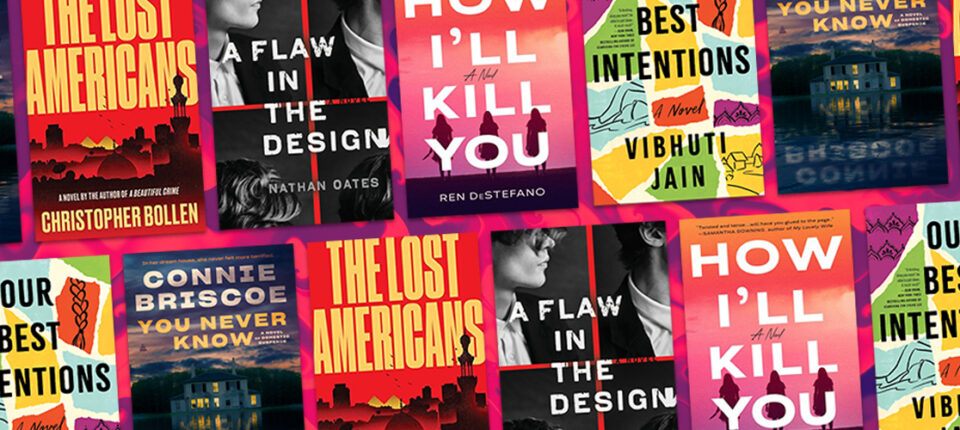My third Canadian winter is my first with Permanent Residency, my first with provincial health insurance, my first real attempt to enjoy winter via talking up cross-country skiing. I’m not good at it, but I hope someday I will be, which is a fairly accurate description of how I approach new ventures. Not with anything as hokey as beginner’s mind, but with the confidence that between my reading and thinking and writing I can find something new to say. Unfortunately, I cannot read, write, or think myself into becoming an excellent skier.
I wax philosophically because I am stepping down from my perch at Lit Hub/Crime Reads. Seven years ago, when Jonny Diamond contacted me about starting crime coverage at Lit Hub, I recognized it as a real chance to continue the work of elevating the critical conversation around true crime and crime fiction. Lit Hub begat Crime Reads in 2018, and I’m proud of what I’ve helped to conceptualize and build. Yet I am keen to explore new back alleys, no-tell motels, and dive bars. My passion for crime fiction is too deep for me to just walk away. My blood runs noir.
I will be around in some august and unexpected places (announcements will follow on my socials). I will also be working on my book about the history, culture, and literature of migraine—my constant companion; my mortal enemy; my nemesis. Migraine is the dominant mystery in my life, and I am both the victim and the detective who must solve it.
Good luck solving your mysteries. Or just keep reading.
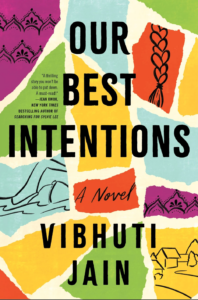
Vibhuti Jain, Our Best Intentions
(William Morrow)
The characters in Our Best Intentions are immigrants under the powerful sway of the American Dream. Babur Singh—call him Bobby—is a single dad who owns a rideshare business, Move with Bobby, which would also be a good name for a man with a van or a dance class. Bobby dotes on his daughter, Angie, and they live in a wealthy suburb where Angie never feels comfortable. When she stumbles on a body, a classmate named Chiara Thompson, on her way home from swim practice, the news rocks the town and sheds light on the issues of privilege and morality. Jain’s debut is an impressive feat, nuanced and unafraid to tackle some thorny issues.
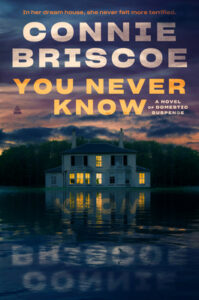
Connie Briscoe, You Never Know
(Amistad)
Although Briscoe is a prolific author in genres like romance, historical fiction, and nonfiction, her first official work of domestic suspense, You Never Know is a sly commentary on classics like Jane Eyre and Rebecca updated for our times. The novel opens with a terrifying burglary—Alexis is asleep when someone breaks into her home. Her hearing is impaired, so she doesn’t piece together what happened until morning. Strangely, the only things she knows are missing are her cochlear implants. The novel then flashes back to Alexis meeting the man of her dreams a year earlier—never trust that guy, your dreams are not skilled screeners for a suitor—who turns sadistic after they marry. Leaving her alone in a huge, isolated house, Alexis is terrified that either her husband or the same burglar is the one who broke in that night and is likely to do it again.
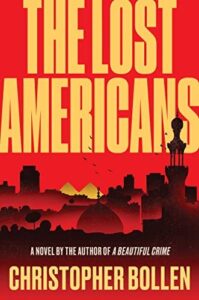
Christopher Bollen, The Lost Americans
(Harper)
I thought Bollen’s second book, Orient, was a humdinger. I am also a big fan of the town of Orient, which Bollen takes for his title, a beautiful beach town on the North Fork of Long Island. While Orient was about the kooky artists who populate the town, The Lost Americans is a potent thriller with an espionage shot on the side. Most of the book takes place in Egypt: a Eric Castle is dead weapons technician who worked for an American contractor. Eric’s sister, Cate, travels to Cairo to investigate and enlists a handsome gay Egyptian named Omar to help her. The further they dig, the more danger they are in–everyone from the secret police to the Egyptian military tries to hamper her investigation. Even American expats want nothing to do with it. The sands of Egypt are not those of the Long Island Sound, but Bollen does a respectable job of bringing his characters and their milieu to life.
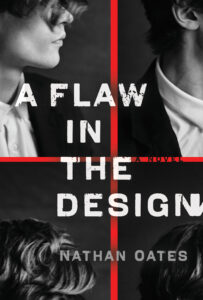
Nathan Oates, A Flaw in the Design
(Random House)
This book has a complex premise which includes many of the issues we are grappling with as a society. Gil, a respected creative writing professor (I’ve heard they exist but don’t think I’ve seen one in the wild), agrees to take in his nephew, Matthew, after Gil’s sister and her husband are killed in a car accident. Gil and his wife aren’t crazy about the idea of suddenly having a 17-year-old boy in their home and are discomfited about taking Matthew in as he behaved strangely (creepy strangely) with their young daughter. With the bitter taste of that incident still lingering, and Matthew writing detailed stories about his parents’ death and the potential death of Gil’s family, Gil must decide if he is going to try and stop his disturbed nephew before something dire happens.

Ren DeStafano, How I’ll Kill You
(Berkeley)
DeStefano hits some high marks in How I’ll Kill You, a chronicle of three identical triplets who take turns at a very serious game. The sister at bat makes a man fall in love with her, murders him, and calls the other two sisters to help with the clean-up. So far, Sissy, the youngest, has always been on the cleanup crew. But as they hit Arizona the sisters decide it’s Sissy’s turn. Her mark is a widower named Edison (really? that’s a name now?), and as she works her love magic on him her sisters get restless and pressure her to finish the job so they can move on. But there is a complication: Sissy falls in love with Edison. Will her sisters finish her mission, and also do away with her? Or can she and Edison somehow escape and break the cycle?

